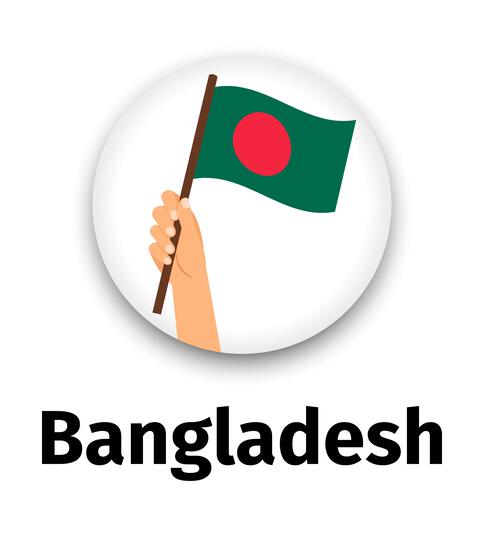Presented by: Minhaz Samad Chowdhury, Independent Human Rights Defender (IHRD)
Focus: State Violence and Land Rights of Minorities in Bangladesh
Email: rightsmanbest@gmail.com | Blog: www.hr-defender.blogspot.com
Executive Summary
The interim government of Bangladesh, led by Nobel laureate Muhammad Yunus since August 8, 2024, was established following a student-led uprising that ousted former Prime Minister Sheikh Hasina. Tasked with restoring stability, implementing institutional reforms, and preparing for free and fair elections by June 2026, the Yunus administration has made progress in economic stabilisation, institutional reform, and diplomatic engagement. However, significant challenges remain, particularly in addressing state violence and protecting the land rights of minorities, which are critical to achieving inclusive governance. This report analyses the government’s key goals, achievements, and challenges, with a specific focus on minority rights, and provides recommendations for success.
Introduction
Following the violent protests in July 2024, which resulted in over 1,400 deaths and the resignation of Sheikh Hasina, Muhammad Yunus was appointed Chief Adviser to lead an interim government. The administration’s mandate includes:
- Implementing reforms in electoral, judicial, administrative, and anti-corruption systems.
- Ensuring justice for victims of the uprising and addressing human rights abuses, including state violence.
- Stabilizing the economy and tackling structural issues like youth unemployment.
- Protecting minority rights, including land rights, to foster inclusive governance.
- Holding free, fair, and inclusive elections by June 2026.
This report evaluates progress toward these goals as of June 2025, with a particular emphasis on state violence and land rights issues faced by minorities in Bangladesh.
Key Goals and Achievements
1. Institutional Reforms
Goal: Reform state institutions to dismantle authoritarian structures and ensure democratic governance.
- Achievements:
- Reform Commissions: The government established 15 reform commissions, including those addressing the constitution, electoral system, judiciary, and public administration. Four commissions submitted reports by January 15, 2025, proposing term limits for prime ministers, a bicameral legislature, and electoral transparency.
- Electoral Reforms: New election commissioners were appointed in November 2024, and an independent electoral reform commission was formed to ensure fair elections.
- Anti-Corruption Efforts: An Anti-Corruption Commission was established, targeting the recovery of $16 billion in annual illicit financial outflows (2009–2023).
- Impact: These reforms provide a framework for democratic governance, but their implementation is slow, and minority representation in reform processes remains limited.
2. Economic Stabilization
Goal: Address inflation, unemployment, and banking crises while promoting inclusive growth.
- Achievements:
- Central Bank Reforms: Under Governor Ahsan H. Mansur, interest rate hikes and loan recovery efforts reduced inflation from 11.6% in July 2024 to 9.05% by May 2025.
- Export Growth: Garment exports grew by 10%, contributing to a $5.4 billion increase in merchandise exports from July–May 2024–2025.
- Transparent Budgeting: The 2024–2025 budget, reduced to 7.9 trillion taka, was presented live, signaling transparency.
- Impact: Economic stabilization has been achieved, but minority communities, often excluded from economic opportunities, have seen limited benefits.
3. Justice and Human Rights
Goal: Ensure justice for victims of the July 2024 uprising, address state violence, and protect minority rights.
- Achievements:
- Accountability Efforts: The government has sought Sheikh Hasina’s extradition to face charges of “massacres, killings, and crimes against humanity” and engaged with the International Criminal Court.
- Civic Space: Political and civic spaces have expanded, allowing opposition parties like the Bangladesh Nationalist Party (BNP) to operate freely.
- Challenges for Minorities:
- State Violence: Reports indicate continued state-backed violence against minorities, particularly Hindus, Buddhists, and indigenous groups, with attacks often linked to land disputes.
- Land Rights: Minority communities face systemic land grabbing, with inadequate legal protections. The Vested Property Act’s legacy continues to disenfranchise Hindus, while indigenous groups in the Chittagong Hill Tracts report forced evictions.
- Impact: While justice efforts have progressed, the failure to address minority-specific issues, including state violence and land rights, undermines the government’s human rights agenda.
4. Preparing for Elections
Goal: Hold free, fair, and inclusive elections by June 2026.
- Achievements:
- Election Commission: New commissioners were appointed in November 2024, and political dialogue with parties like the BNP has begun.
- Impact: The lack of minority representation in electoral planning risks excluding vulnerable communities from the democratic process.
5. Diplomatic Engagement
Goal: Strengthen global standing and address regional issues, including minority rights advocacy.
- Achievements:
- Climate Advocacy: Yunus’s “Three Zeroes” framework at COP29 highlighted climate and economic challenges, indirectly benefiting minority communities in vulnerable regions.
- International Support: The UK visit in June 2025 and global partnerships have supported anti-corruption and economic recovery efforts.
- Impact: Diplomatic efforts have not yet prioritized minority land rights or state violence, limiting their relevance to these communities.
Challenges with Focus on State Violence and Minority Land Rights
- State Violence Against Minorities:
- Despite the government’s reform agenda, reports of state-backed violence against minorities persist. Hindu temples and indigenous lands have been targeted, often with impunity.
- The lifting of the ban on Jamaat-e-Islami has fueled concerns about rising Islamist influence, exacerbating attacks on minorities.
- Land Rights Violations:
- Hindus: The Vested Property Act’s legacy enables land grabbing, with an estimated 2.6 million acres of Hindu-owned land seized since 1971.
- Indigenous Groups: In the Chittagong Hill Tracts, militarization and settler encroachment have displaced thousands, violating the 1997 Peace Accord.
- Legal frameworks to protect minority land rights are weak, and the judiciary lacks independence to address these issues effectively.
- Political Instability:
- Tensions with the military and the BNP over election timelines (December 2025 vs. June 2026) divert attention from minority issues.
- The suspension of the Awami League’s registration has polarized politics, reducing focus on inclusive governance.
- Media Freedom:
- 640 journalists face criminal cases, violence, or accreditation denials, limiting coverage of minority rights abuses.
- Independent reporting on state violence and land grabbing is suppressed, reducing public awareness.
- Public Trust:
- Slow progress on minority rights and economic inclusion is eroding trust among vulnerable communities, who feel excluded from the “Bangladesh 2.0” vision.
Recommendations
- Combat State Violence:
- Establish an independent commission to investigate state-backed violence against minorities, with a mandate to recommend prosecutions.
- Train law enforcement to protect minority communities and ensure accountability for perpetrators.
- Protect Minority Land Rights:
- Repeal or reform the Vested Property Act to restore Hindu-owned lands and establish a fast-track tribunal for land disputes.
- Fully implement the 1997 Chittagong Hill Tracts Peace Accord, including land restitution for indigenous groups.
- Strengthen legal aid for minorities to access justice in land-related cases.
- Enhance Minority Inclusion:
- Ensure minority representation in reform commissions, electoral planning, and governance structures.
- Launch public awareness campaigns to promote tolerance and counter Islamist narratives targeting minorities.
- Accelerate Reforms:
- Prioritize judicial independence to address land disputes and human rights abuses effectively.
- Implement electoral reforms to ensure minority voices are heard in the 2026 elections.
- Strengthen Diplomacy:
- Raise minority rights issues in bilateral talks, particularly with India, to address cross-border impacts on Hindu communities.
- Seek international support for land restitution programs and investigations into state violence.
Conclusion
The Yunus government has laid a foundation for democratic and economic reforms, but its failure to adequately address state violence and land rights violations against minorities threatens its vision of an inclusive Bangladesh. By prioritising accountability, legal protections, and minority inclusion, the administration can build trust and achieve its goals. The next nine months are critical for delivering justice and equality ahead of the April 2026 elections.







.jpg)






No comments:
Post a Comment
Please validate CAPTCHA